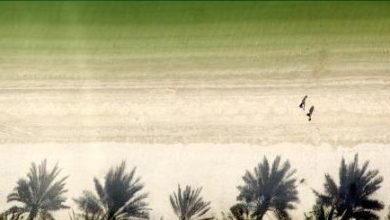6.THE LOSS OF DUNIA V FREEDOM WITHIN

We want the victory of Allah, and we want the promise, the belonging, for Allah to be with us. How can we have Allah with us? It is when we belong to Allah.
For example, Allah gave us The story of the Boy and the King.
In this story, a boy had a choice to either be a prestigious sorcerer – a person with status in the society; or to learn and spread Islam. He could either believe in Allah and pay for the consequences of such belief, or to be the magician, attaining all the dunia status, but denying the message.
The boy eventually chose the path of Islam, and as a result, he and the rest of the believers were killed by the King for refusing to renounce their faith.
From the dunia perspective, the boy and the believers were losers. Yet, from an Islamic perspective, Allah had given them eternal glory. They died victorious because they died for their belief in Allah. They triumphed with their faith, even if they paid for their belief with their lives.
If Allah included a story the Qur’an, it means it is a live message for us to live by until the Day of Judgment. This story has a message and wisdom behind it. It is a symbol for us to follow.
If we examine this story and many others in the Qur’an, it will guide us how to deal with the current affairs, identify the disease, understand the cure and appreciate what victory means. Today we believe that financial stability, a thriving economy, prestige, beauty and luxury, or the military conquest of a land, is victory. Without Allah in the equation, this is not victory – it is actually a defeat.
The message is simple. Having faith and dying with faith, and even if you lose all your possessions and your life, is a victory. On the other hand, leading a material life, even as a king or a governor, but with no faith, is a crushing defeat. It does not matter what village or city you are from, the promise of Allah will apply to you.
A journey of iman is frequently accompanied by a loss of dunia. Such a material loss is for Allah to check the extent to which we value the message and what we are willing to give up for it. For example, Khadijah RA was one of the wealthiest merchants in Arabia, but when she died, she did not even have food in the house. She died impoverished, for she had sacrificed all her belonging towards supporting her husband, Rasulullah SAW, in spreading Islam. For this unconditional and ongoing sacrifice, she is one of the noble persons to whom her place in Jannah was revealed before she passed away.
One of the major defeats of the ummah today is that we love dunia excessively. We are willing to sacrifice everything for a material status because we place our values and worship to dunia, and not akhirah. The rich do not spend the way they should for Allah. The distribution of wealth is concentrated on the rich minority and not the poor majority. Under Islamic teachings, this gulf should not exist in any Muslim country: every Muslim nation has sufficient rich people, and if the rich Muslims distributed 20-30% of their capital on the poor, all poverty will be eradicated. The culprit of the income gap we see is the lack of generosity and iman, not deficiencies in resources.
Most of the rich cannot part with their wealth, because their nafs is high and the belief in the promise of Allah is low. They would be willing to spend their money on luxuries – cars, diamonds and luxury watches in order to win in the competition of dunia, but are reluctant to donate even a fraction of their earnings to the poor. They are not free from their own desires and temptation, and are not pure from the enticements of dunia – in simple words, their dunia is lodged deep in their hearts. Whereas for a mu’min, his dunia is in his hands but never penetrate his heart.
Freedom from the clutches of dunia is the path to victory. The obedience to Allah is freedom: the freedom, dignity and honour of your soul. This is achieved if your heart is not chained to any material desires, man, woman, child, money, or looks. This freedom comes when we are not trapped by our dunia affairs, daily dramas, irrational attachments, fear of loss and the obsession of accumulating. With such freedom, we liberate ourselves from the binds of self-adoration, irrational desires, jealousy, envy, adulation of the rich and other diseases of the heart which enslave and defeat us.




